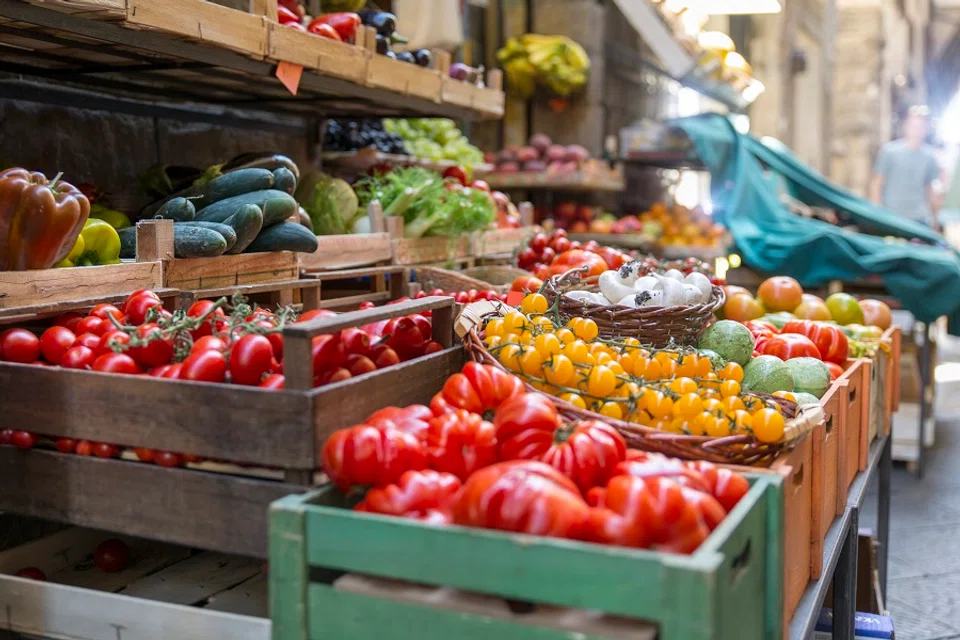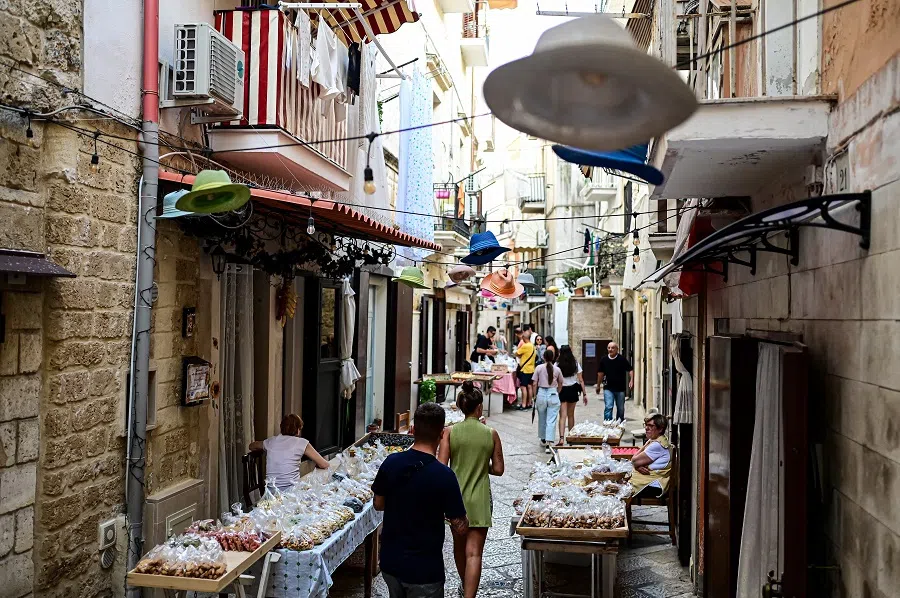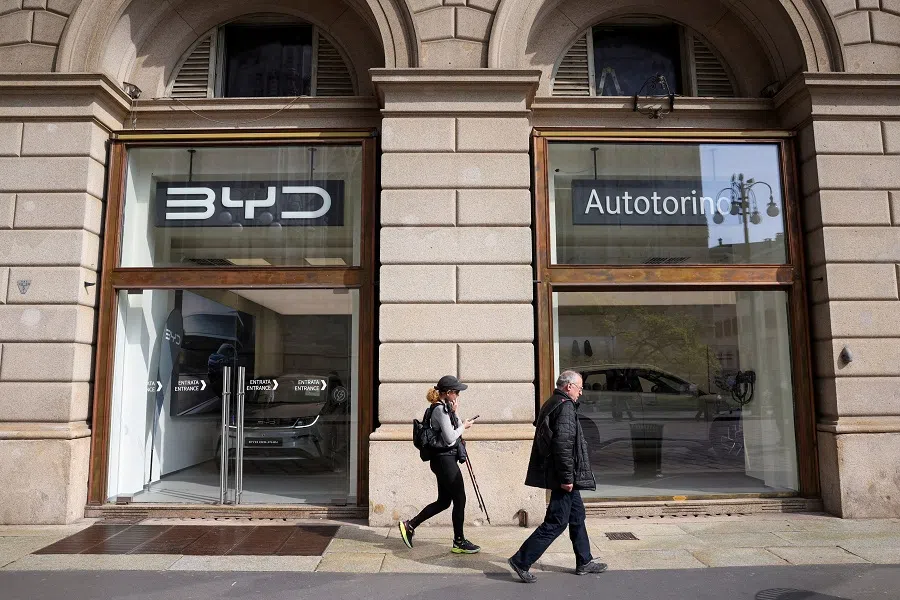Chinese tomato paste imports stir debate in Italy
Agriculture is usually not central to Italy-China ties, says academic Alessandro Albana. But Italian protests over Chinese tomato paste offer insights into complex China-Italy and China-Europe relations.

When it comes to culinary culture, pasta plays a very special role for Italians. Many Italians claim to enjoy a dish of pasta at least once a day. This trait is well known outside Italy, as pasta has come to epitomise the country’s cuisine.
But taken alone, pasta is far from making up the entire picture. Pasta is served with tomato sauce in the most classical of recipes. Because of that and because Italy is a leading global supplier of tomatoes and tomato production is key to the country’s economy, the tomato is firmly rooted in the Italian culinary identity.
Thus, when in late May this year, Coldiretti — a union involving Italian farmers and agriculture entrepreneurs — protested the arrival in the southern city of Salerno 44 containers carrying tomato paste produced in China, the significance of tomato as a key element in Italian culinary landscape provided the backdrop for the complaints.
According to Coldiretti vice-president Gennarino Masiello, Chinese tomatoes are far from meeting Italian standards in terms of food quality and safety procedures.
Chinese tomato concentrate stir controversies
According to Coldiretti, the import of Chinese tomato concentrate stirred up a number of critical controversies.
Firstly, the paste was intended to be processed and packaged at Italian factories before ending up in local and national food markets as a product holding a “made in Italy” label. Such a process, Coldiretti claims, is made possible by the custom code “last processing stage” regulation, which seemingly allows food products to be labelled as “made in” the country where the last step of the industrial transformation is operated.
According to Coldiretti vice-president Gennarino Masiello, Chinese tomatoes are far from meeting Italian standards in terms of food quality and safety procedures.

The campaign against the import of Chinese tomatoes was indeed punctuated with “No Fake in Italy” banners and slogans, which had been spotted during other similar demonstrations promoted by Coldiretti elsewhere.
Addressing Coldiretti’s criticisms, the National Association of Vegetable Food Preservers in Italy (ANICAV) claimed that laws and regulations do not allow either China’s tomatoes or any other food import to be labelled as “made in Italy”. The stock of tomato concentrate from China was therefore expected to be processed at Italian factories and commercialised abroad afterwards.
In addition, ANICAV emphasised that “concentrate imports do not pose a significant threat to the Italian agricultural sector, as the country continues to prioritise its high-quality tomato production and maintains a significant lead in the global market”. Yet Italy is a leading destination for China’s tomato concentrate exports, receiving 11% of Beijing’s total exports.
Coldiretti claims that some 90% of tomatoes exported from China come from Xinjiang.
Xinjiang connection worsen concerns
Secondly, criticism towards the import from China was fuelled by the fact that the tomato paste was made out of crops originating from Xinjiang. According to Coldiretti, the cargo exported to Italy represents a case of unfair trade involving forced labour, the exploitation of Uighur workers and poor quality standards. Coldiretti claims that some 90% of tomatoes exported from China come from Xinjiang.
Such concerns were raised earlier last May by the Uyghur Human Rights Project (UHRP) and the Uyghur American Association and Safeguard Defenders (UAASD). The two NGOs urged the Italian government and the Italian ambassador to the US Mariangela Zappia “to take immediate action to investigate the origin of the goods arriving in Salerno and to implement measures to prevent the import of products produced by forced labour”.
Containers carrying tomato paste left China in late April and were shipped by train along the “China-Europe Railway Express”, before being transferred on a ship and finally arriving at the port of Salerno after a one-month journey. The China-Europe Railway Express comprises several train routes involving logistic connections between Chinese and European cities.
Originally established in 2011, the project became part of the Belt and Road Initiative (BRI) and witnessed a significant increase in operations, especially after the Red Sea crisis that took place in late 2023, providing safety complications and uncertainties for Asia-Europe maritime commerce.
Along with the BRI, the China-Europe Railway Express has gained criticism as it is considered a tool serving China’s economic interest exclusively and promoting commerce for products obtained through forced labour and violations of human rights.

Though significantly more expensive than maritime commerce, train logistics guarantee far shorter time frames. Against this backdrop, the China-Europe Railway Express has become a flagship of Beijing’s BRI as its operations increased enormously in the past ten years.
Along with the BRI, the China-Europe Railway Express has gained criticism as it is considered a tool serving China’s economic interest exclusively and promoting commerce for products obtained through forced labour and violations of human rights. Addressing the Italian authorities, UHRP and UAASD complained that the China-Europe train bound for Salerno was “filled with products that are the presumed product of forced labour”.
More bilateral exchanges but farmer grievances simmer
As far as bilateral relations and international trade are concerned, unease regarding the import of China’s tomato concentrate in Italy does not seem to rank among the most sensitive controversies.
In early July, Italian Minister for Business Adolfo Urso paid an official visit to China, where he met member of the Political Bureau of the Communist Party of China (CPC) Central Committee and secretary of the CPC Beijing Municipal Committee Yin Li, Minister of Industry and Information Technology Jin Zhuanglong and a number of top managers in the automotive industry.
Minister Urso’s visit lays the ground for Italian Prime Minister Giorgia Meloni’s visit to China, expected to take place later this month. In the commercial and economic realms, all eyes are on automotive, battery and electric vehicles industries, with agriculture holding little — if any — relevance.
Yet criticism and protests against the import of Chinese tomato paste provide a significant glimpse of the factors and processes making China-Italy ties — and China-Europe relations more broadly — particularly turbulent.


![[Big read] When the Arctic opens, what happens to Singapore?](https://cassette.sphdigital.com.sg/image/thinkchina/da65edebca34645c711c55e83e9877109b3c53847ebb1305573974651df1d13a)


![[Video] George Yeo: America’s deep pain — and why China won’t colonise](https://cassette.sphdigital.com.sg/image/thinkchina/15083e45d96c12390bdea6af2daf19fd9fcd875aa44a0f92796f34e3dad561cc)